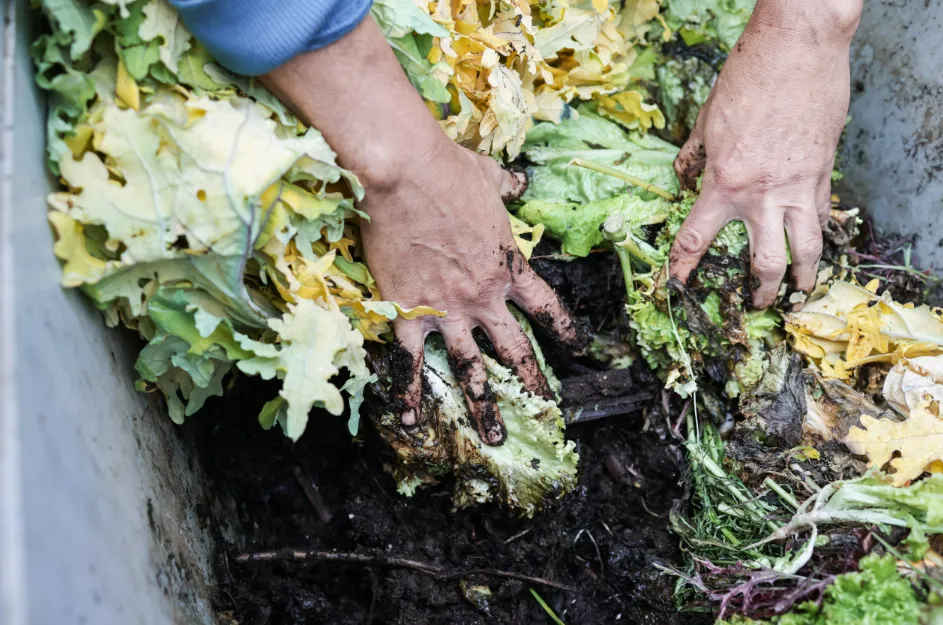Gardening enthusiasts and eco-conscious homeowners alike have discovered the numerous benefits of using organic compost in their gardens. It’s an environmentally friendly way to enhance soil health and improve plant growth. Whether it’s flowers, vegetables, or shrubs, using organic compost correctly can help. Here are five benefits of incorporating it into your garden.
- Improved Soil Structure
Gardeners can buy mushroom compost online as it enhances the structure of the soil. Adding to garden beds helps break up heavy clay soils, which often become compacted and difficult for plants to grow in. The organic matter loosens the soil, improving aeration and drainage. This leads to better root growth and gives plants easier access to nutrients. It acts as a binder for sandy soils, preventing them from draining too quickly and allowing them to retain more moisture.
- Enhanced Nutrient Content
Organic compost is packed with essential nutrients like nitrogen, phosphorus, and potassium, which are vital for plant growth and development. When compost is applied, it gradually releases these nutrients, feeding plants over time. Furthermore, it contains microelements that support plant health, such as calcium, magnesium, and sulfur. These nutrients are important in photosynthesis, cell division, and plant vigor.
- Increased Microbial Activity
The presence of organic materials encourages a healthy microbial ecosystem. Microorganisms such as bacteria, fungi, and earthworms thrive in compost-enriched soil. These organisms break down organic matter into smaller, more accessible particles, making nutrients available to plants in a form they can absorb. In addition to benefiting plants, microorganisms help to suppress harmful pathogens and pests that might damage crops.
- Moisture Retention and Drought Resistance
Watering is one of the most critical aspects of maintaining a healthy garden, but too much water or poor drainage can lead to plant stress. Organic compost enhances moisture retention, helping to reduce both the frequency and amount of water required. This is particularly beneficial in dry climates or hot summers when water conservation becomes essential. It also helps plants withstand periods of drought by increasing moisture retention, making gardens more resilient, especially in regions with inconsistent rainfall.
- Reduced Waste and Environmental Impact
Organic compost provides an eco-friendly method for recycling organic waste, such as kitchen scraps, yard trimmings, and manure. Rather than sending these materials to landfills, they can be transformed into nutrient-rich soil. This process helps reduce landfill waste while supporting a more sustainable environment. Additionally, composting minimizes the need for chemical fertilizers, which can adversely affect the environment.
Using Mushroom Compost for Your Soil
When purchasing compost soil, it’s essential to check the nutrient content to ensure it meets your garden’s needs. Mushroom, for example, is an excellent choice due to its rich content of nitrogen, phosphorus, and potassium, essential nutrients for healthy plant growth. It also contains trace minerals like calcium and magnesium, which support overall plant health. Additionally, consider how well it helps with drainage and moisture retention, which is especially beneficial for plants that need a well-balanced environment to thrive.
Mushroom soil is typically well-processed, reducing the likelihood of harmful pathogens. People can buy mushroom compost from trusted suppliers that offer high-quality, nutrient-rich options. This ensures you’re investing in a product supporting long-term health and encouraging vibrant plant growth.
Organic mushroom compost helps loosen the soil and adds nutrients, while also encouraging helpful microbes and holding in moisture. Gardeners looking to optimize their soil can buy mushroom compost online to experience these advantages. Whether enhancing the garden’s ecosystem or reducing the carbon footprint, organic compost offers many benefits that create a thriving, environmentally friendly garden.



